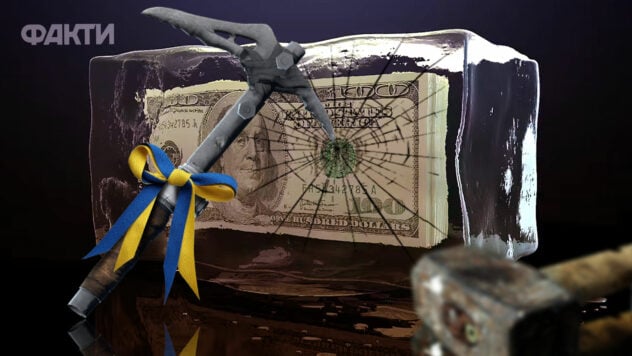
Leaders of the Group of Seven (G7) countries will provide Ukraine with $50 billion due to the use of frozen Russian assets.
La Presse, AFP and Bloomberg write about this, citing their sources in the USA and France.
$50 billion from frozen assets of the Russian Federation
— G7 leaders reached an agreement “to allocate $50 billion” for Ukraine from frozen Russian assets, announced France, which chairs the G7, — writes AFP.
In turn, Bloomberg reports that the G7 intend to “reach a political agreement” on providing Ukraine with $50 billion in assistance from income received from frozen Russian assets. Bloomberg also refers to a representative of the Elysee Palace.
Now watching
— However, the technical details of the deal must be finalized after this week's G7 leaders' summit in Italy, meaning a final agreement could take some time, — writes Bloomberg, citing a French official who spoke on condition of anonymity.
In turn, information about the agreement between the G7 countries is also reported by the French publication La Presse, which refers to its source.
— There is an agreement. In the G7, leaders make a decision and then technicians do their job of putting it into shape to ensure it complies with the law, public finance rules, or even financial principles, — quotes his source La Presse.
A representative of the Elysee Palace added that this was originally an American initiative.
— This loan is supposed to be repaid using frozen Russian assets, — the message says.
Allocation of frozen assets of the Russian Federation to Ukraine
The French assessment comes after US comments on Tuesday that the leaders had almost reached a political agreement.
Bloomberg sources who are familiar with the progress of negotiations in the US and France say that the goal is to allocate funds by the end of the year.
G7 members warned that despite any agreement expected to be one of the main outcomes of the summit, some remaining questions about how it will work are complex.
G7 policymakers have been debating for months how to use the proceeds from some $280 billion in frozen Russian Central Bank funds, most of which are kept in Europe.
It is added that the proceeds from the frozen assets are estimated at between 3 and 5 billion euros annually. The EU has already agreed to provide Ukraine with these revenues twice a year, but the US is urging G7 allies to find ways to provide Kyiv with more immediate support.
Challenging issues that will need to be resolved include figuring out how to structure any loans to Ukraine, how to spread risk among allies and ensure that assets remain frozen for years.

